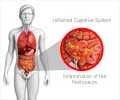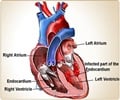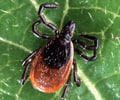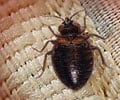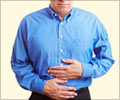Ceftriaxone Medication Information
Learn everything you need to know about Ceftriaxone-pronunciation, uses, dosage guidelines, indications, and when to take or avoid it.
Get up-to-date information on side effects, precautions, warnings, and proper storage to ensure safe usage.
Explore Ceftriaxone brand names commonly used in India and internationally, along with detailed pricing information. Consult your healthcare provider for tailored medical advice.
Generic Name : Ceftriaxone Pronunciation : SEF-trye-AX-one ICD Code : Y40.1 Therapeutic Classification : AntibioticsBrand Names or Trade Names of Ceftriaxone
India :
Finecef-T (0.25g/0.031g) |
Lisel -TBZ |
Tancef - S (375 mg) |
Nexef-O (1g) |
Infoxon T |
Finecef T |
Malocef |
Gentrax (1g) |
SMS SB |
Aerocef TZ 1125
International :
Rocephin
Overview of Ceftriaxone
Ceftriaxone is an antibiotic, used for the treatment of various infections.Why is Ceftriaxone Prescribed? (Indications)
Ceftriaxone is indicated for:• Lower Respiratory Tract Infections
• Skin infections
• Urinary Tract Infections
• Pelvic Inflammatory Disease –infections related to the female genital tract Bacterial Septicemia-infection in the blood
• Bone and Joint Infections
• Meningitis
• Surgical Prophylaxis –To prevent infections during surgery
When should Ceftriaxone not be taken? (Contraindications)
Ceftriaxone should not be used by patients with allergy to ceftriaxone or other cephalosporin class antibacterials, penicillins, or other beta-lactam antibacterialsWhat is the dosage of Ceftriaxone?
Middle ear infection: Children - IM A single dose of 50 mg/kg (max, 1 gram) is recommended.Meningitis in children: Children - IV: Recommended initial dose is 100 mg/kg (max, 4 gram), followed by 100 mg/kg/day (max, 4 gram/day) for 7 to 14 days.
Skin or Skin Structure Infections: Children - IV/IM: Recommended daily dosage is 50 to 75 mg/kg once a day or in equally divided doses twice daily (max, 2 gram/day).
Surgical Prophylaxis: Adults - IV: 1 gram as a single dose 30 min to 2 hours before surgery.
Uncomplicated Gonococcal Infections: Adults - IM: 250 mg as single dose.
Miscellaneous Infections: Adults - IV: Usual adult daily dosage is 1 to 2 g once a day or in equally divided doses twice daily, depending on the type and severity of infection (max, 4 gram/day).
Children- IV: Recommended daily dose is 50 to 75 mg/kg IV once a day or in divided doses every 12 h (max, 2 gram/day). IV/IM: Recommended daily dose is 50 to 75 mg/kg IV/IM in divided doses every 12 h (max, 2 gram/day).
Acute Bacterial Otitis Media Persistent/Treatment Failure: Children - IM/IV 50 mg/kg/ IM or IV (not to exceed 1 gram) daily for 3 days.
Pelvic Inflammatory Disease (mild to moderate): Adults - IM 250 mg given IM as a single dose with doxycycline 100 mg orally twice daily for 14 days, with or without metronidazole 500 mg orally twice daily for 14 days.
Uncomplicated Gonococcal Infections: Adults - IM 125 mg given IM as a single dose.
Typhoid:Adult- IV: 4gm/day for 2 days, followed by 2g/day. Child- 75mg/day for 2 days.
How should Ceftriaxone be taken?
It should be given by intravenous route only over around 30 minutes.The usual Adult Dose is 1 g to 2 g once a day or in equally divided doses twice a day.
The total dose should not exceed 4 grams.
Patients with liver and kidney problems should not receive more than 2 grams per day of ceftriaxone.
What are the warnings and precautions for Ceftriaxone?
• Ceftriaxone may cause allergic reactions. Cross-allergies may occur in up to 10% of patients with a history of penicillin allergy. Discontinue the drug in this case.• The drug may cause Clostridium difficile-associated diarrhea
• Avoid excess dosage
What are the side effects of Ceftriaxone?
Central Nervous System- Dizziness, Headache.Gastrointestinal- Diarrhea, nausea and vomiting.
Blood- High concentration of eosinophils, platelet counts in the blood, decrease in white blood cells, low prothrombin levels, bleeding.
Lab tests- Increase in liver enzyme, elevated BUN (Blood urea, nitrogen).
Local- Indurations/tightness/warmth.
Genitourinary- Vaginal inflammation.
Miscellaneous- Fatal ceftriaxone-calcium precipitates in lung and kidneys of neonates.
What are the other precautions for Ceftriaxone?
Caution is needed in patients with:• Hemolytic anemia
• Kidney problems
• Liver problems
What are the Drug Interactions of Ceftriaxone?
Do not take Ceftriaxone with:• Vancomycin
• Amsacrine
• Aminoglycosides
• Fluconazole
• Calcium-containing products
 MEDINDIA
MEDINDIA
 Email
Email





